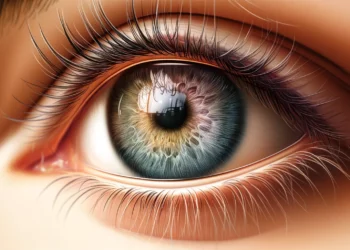Tiny blood vessels in the back of the eye, which are thinner than a human hair, may signal the presence of Alzheimer’s disease. A new eye scan test, developed by researchers at the Duke Eye Center, suggests this connection can be exploited to detect the neurodegenerative disease before symptoms become too severe to respond to treatment.

Diagnosing Alzheimer’s disease is tricky. Symptoms progress slowly over several years and can be easily confused with other conditions that may initially be attributed to old age. By the time it’s obvious that a person has Alzheimer’s it’s already too late, as the disease has already eaten away too many brain cells.
There is no cure for Alzheimer’s but research suggest that it is possible to delay its onset by several years if the condition is diagnosed early on. Some techniques, such as brain scans or spinal taps, can theoretically detect Alzheimer’s fairly early, however, they can’t be scaled to screen the millions of people who are vulnerable to the disease. An early diagnosis also gives patients and their families some valuable time to plan for the future.
This is why this latest study is so exciting — it suggests that it’s possible to detect Alzheimer’s simply by imaging the back of the eye. The non-invasive imaging technique, called optical coherence tomography angiography (OCTA), is based on the idea that since the retina is an extension of the brain, the two also share similar features.
In order to investigate whether damage to the retina may mirror changes in the brain’s blood vessels, researchers compared 70 eyes of 39 Alzheimer’s patients with 72 eyes of 37 people with mild cognitive impairment, as well as 254 eyes of 133 cognitively healthy people. According to the results, the Alzheimer’s group had lost some of their retinal blood vessels in the back of the eye. A specific layer of the retina was also thinner in this group compared to people with mild cognitive impairment or healthy individuals.
In the future, this technique could prove to be a quick, noninvasive, and inexpensive way to detect Alzheimer’s at the earliest stages.
“Early diagnosis of Alzheimer’s disease is a huge unmet need,” Sharon Fekrat, M.D., Professor of Ophthalmology at Duke, said in a statement. “It’s not possible for current techniques like a brain scan or lumbar puncture (spinal tap) to screen the number of patients with this disease. It is possible that these changes in blood vessel density in the retina may mirror what’s going on in the tiny blood vessels in the brain. Our work is not done. If we can detect these blood vessel changes in the retina before any changes in cognition, that would be a game changer.”
The findings appeared in the journal Ophthalmology.






